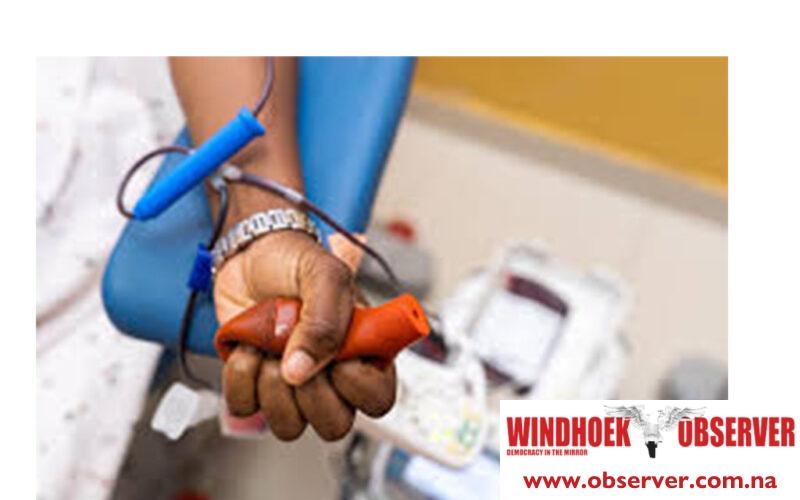Hertta-Maria Amutenja
Simon Iyambo credits blood donations for saving his life after a car accident last year left him critically injured.
“I needed an emergency blood transfusion after losing so much blood in the accident. If it weren’t for those who donated blood, I wouldn’t be here today. They don’t just give blood; they give life,” Iyambo said.
His testimony comes as public debates intensify over compensating blood donors, with the Ministry of Health and Social Services spending an average of N$160 million annually on blood and blood products.
Despite this, some Namibians argue that the voluntary system should be supplemented with financial incentives to encourage donations.
Facebook user Nathy Man Muhaindjumba commented, “We are a nation with high unemployment rates, and most inhabitants live below the poverty line. The best the blood transfusion centres can do is introduce some incentives for those willing to donate blood. In so doing, you can also help donors have something to take home to eat. Nothing is for mahala in this life.”
Richard Z. Manyoni shared similar sentiments, stating, “We spend our hard-earned money to maintain our bodies just to give blood for free to be sold? At least a N$1 000 monthly allowance or N$2 500 annually.”
The health minister, Dr Kalumbi Shangula explained that voluntary donations remain vital for the safety and sustainability of the blood supply.
“Blood is not manufactured in a laboratory. It is a gift of life that is given by one person to another. If we all expect to be paid for this gift, the system will collapse, and lives will be lost,” Shangula said.
He urged Namibians to consider the life-saving impact of donating blood, citing the critical role it plays in emergencies and routine medical care.
The country’s blood supply remains critical, with stock levels recently dwindling to only two days’ worth of reserves, as reported by the Blood Transfusion Service of Namibia (NamBTS).
The country requires at least 200 units daily to meet medical demands, but during the festive season, reserves were at just 25% of required levels.
NamBTS marketing officer, Frieda Asino explained that while the government covers 80% of collected blood for state hospitals, private institutions, which consume the remaining 20%, help sustain operational costs through blood transfusion fees.
She said blood donation remains voluntary, and is aligned with international standards.
“No country in the world pays for whole blood donations. Payment for transfusions in private institutions covers collection, testing, and processing costs. At state hospitals, patients do not pay for blood transfusions because the government shoulders the costs,” Asino said.




